Prof Cheung Kwok Cheung has been teaching at the University of Macau (UM) for nearly 30 years, nurturing generations of teachers for Macao. He has been the director of the Educational Testing and Assessment Research Centre (ETARC) under the Faculty of Education (FED) since the centre’s establishment in 2006, and has been commissioned by the local government to head the PISA project (PISA is short for Programme for International Student Assessment). ‘The PISA project is an important part of our team’s mission to serve the local community through research and to contribute to the ‘top-down design’ of education policy in Macao,’ says Prof Cheung. ‘We hope our work can assist the government to make better long-term education policy.’
A Dedicated Educator
A dedicated educator, Prof Cheung has trained many outstanding teachers for Macao. After graduating from the University of Hong Kong in the mid-1980s with a bachelor of science degree (major in mathematics, minor in computer sciences) and a master’s degree (testing, measurement, and evaluation), he went on to pursue a doctor of philosophy degree in science education at the University of London. After completing his studies, he was recruited to teach at UM in 1992.
In 1988, UM’s predecessor, the University of East Asia, was acquired by the Macao government, and was renamed the University of Macau in 1991. Prof Cheung joined UM at a time of transition when the university had just been restructured from a private to a public institution. In 1989, the FED was established to train education professionals for Macao.
Since its inception, the university has recruited outstanding faculty members from around the world to enhance the quality of its teaching and research, and Prof Cheung is an example. Recalling his initial impression of the university during his first visit, he says: ‘The campus was quite small and the teaching conditions were not great, but everyone was very enthusiastic about education.’
Prof Cheung served as the dean of the FED from 1995 to 1999 and he witnessed firsthand the development of the faculty during that period. ‘I thought as a teacher training institution, the FED ought to do more, so we proposed establishing an affiliated school, and that’s how the Affiliated School of the University of Macau came into being,’ he says. Over the years, Prof Cheung has taught many students who now hold important positions in various education sectors around the world.
Studying Education with Data
PISA has been administered triennially since 2000. It assesses the performance of 15-year-old secondary school students worldwide in reading, mathematics, and science. UM established ETARC in 2006, and Prof Cheung has served as its director the entire time. ETARC promotes research on educational testing and assessment, and the government commissioned the centre to conduct the Macao-PISA study in 2009.
According to Prof Cheung, the PISA study compares the performance of students in different countries/economies based on their respective education policies and learning environments. ‘By studying the performance of students in PISA, we can identify problems and weaknesses in the basic education system,’ says Prof Cheung. Schools can use the data to determine the level of their students, design their curricula, and set teaching objectives. The government can use the data to formulate targeted education policies to improve the quality of education in Macao.
Prof Cheung’s education and research interests are closely related to data science, and he is accustomed to ‘left-brain thinking’, evaluating students’ learning outcomes through data induction and analysis.
In the latest PISA in 2018, Macao came in a close third in the world in reading, mathematics, and science, with mainland China and Singapore occupying the top two spots. Prof Cheung says by comparing the performance of students in different countries with different education policies and learning environments, they can provide useful data for schools in Macao to design curricula and set teaching objectives. This data can also help the local government to formulate better education policies. In response to the PISA data, teacher training institutions such as UM have worked to enhance teachers’ professional capacity, including promoting a habit of reading and improving the outcomes of classroom learning.
Training Assessment Professionals
In recent years, Macao’s PISA scores have continued to improve, and Prof Cheung says this is due to the longstanding efforts of the SAR government. ‘The Education and Youth Development Bureau has always attached importance to education,’ he says. ‘The bureau has taken the initiative to provide data for the PISA study and has set up a dedicated education assessment and research institute to handle related work. However, the bureau does not treat the PISA report as a ranking game. Instead, it attaches importance to the subsequent review of the education system and its improvement.’ Prof Cheung says as the government continues to invest in education, UM and other teacher training institutions have carried out a lot of work on classroom teaching, which has enhanced the professional capacity of teachers and has led to continuous improvement in student performance.
After years of hard work, Prof Cheung is pleased to see that through the PISA study, UM has nurtured many assessment professionals for the local community. ‘These people are the most important driving force behind the continued improvement of the quality of education in Macao,’ he says.
Source: My UM ISSUE 108
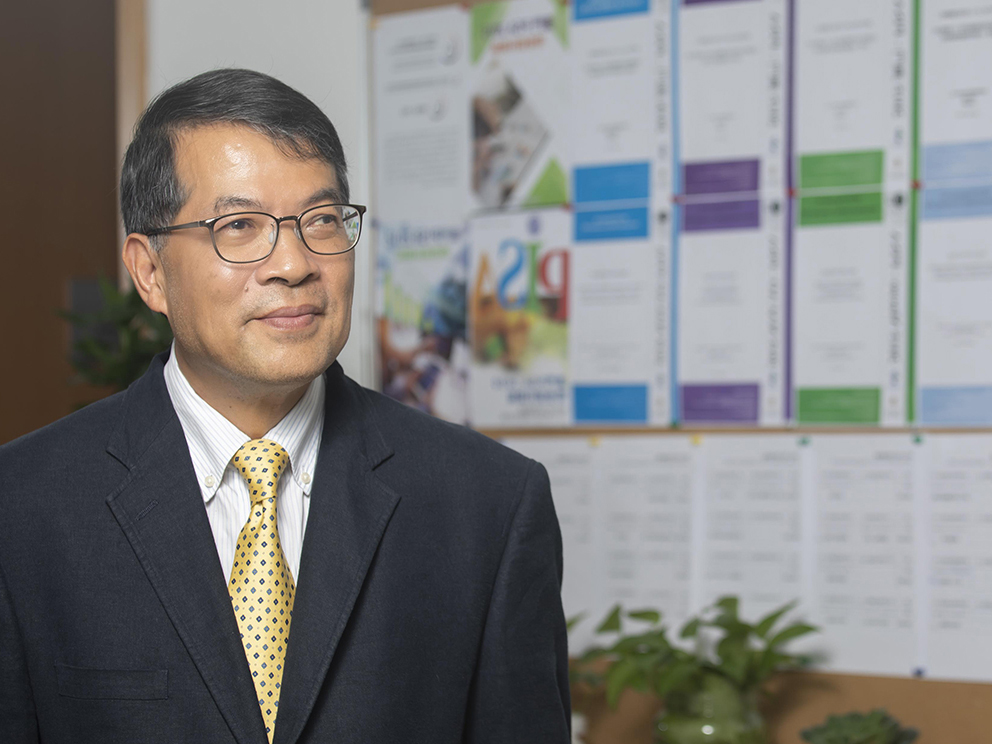
Prof Cheung Kwok Cheung
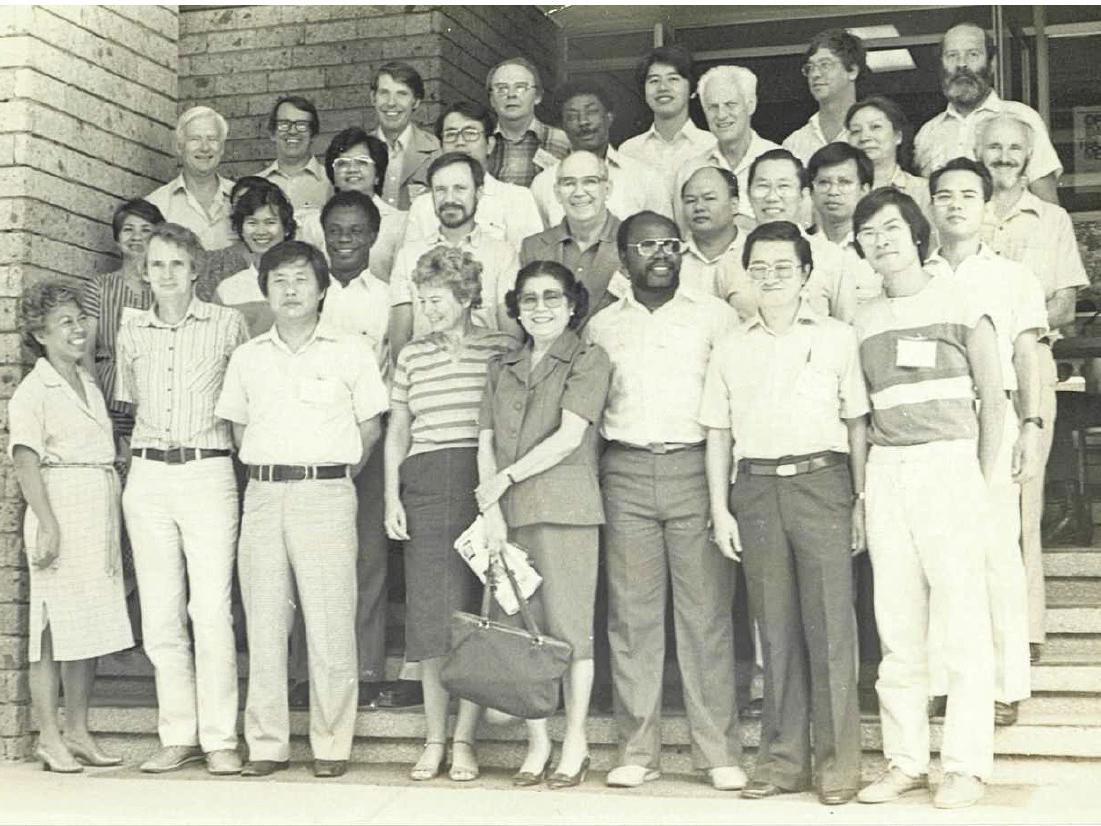
Prof Cheung Kwok Cheung (front row, 1st from right) represents Hong Kong at an educational assessment conference in the early 1980s
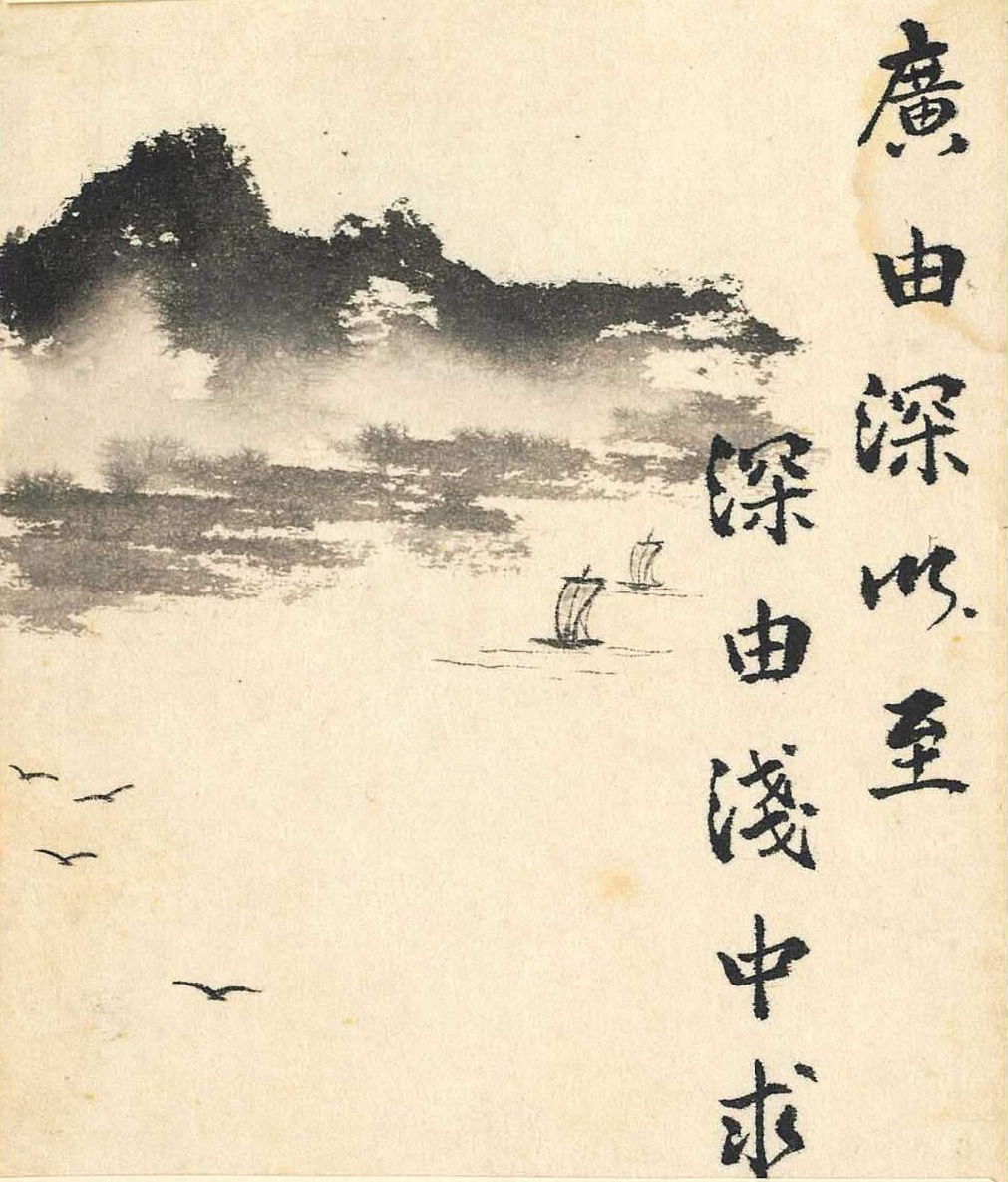
A painting from one of Prof Cheung Kwok Cheung’s friends when he first started teaching. The words on the painting have become Prof Cheung’s motto.
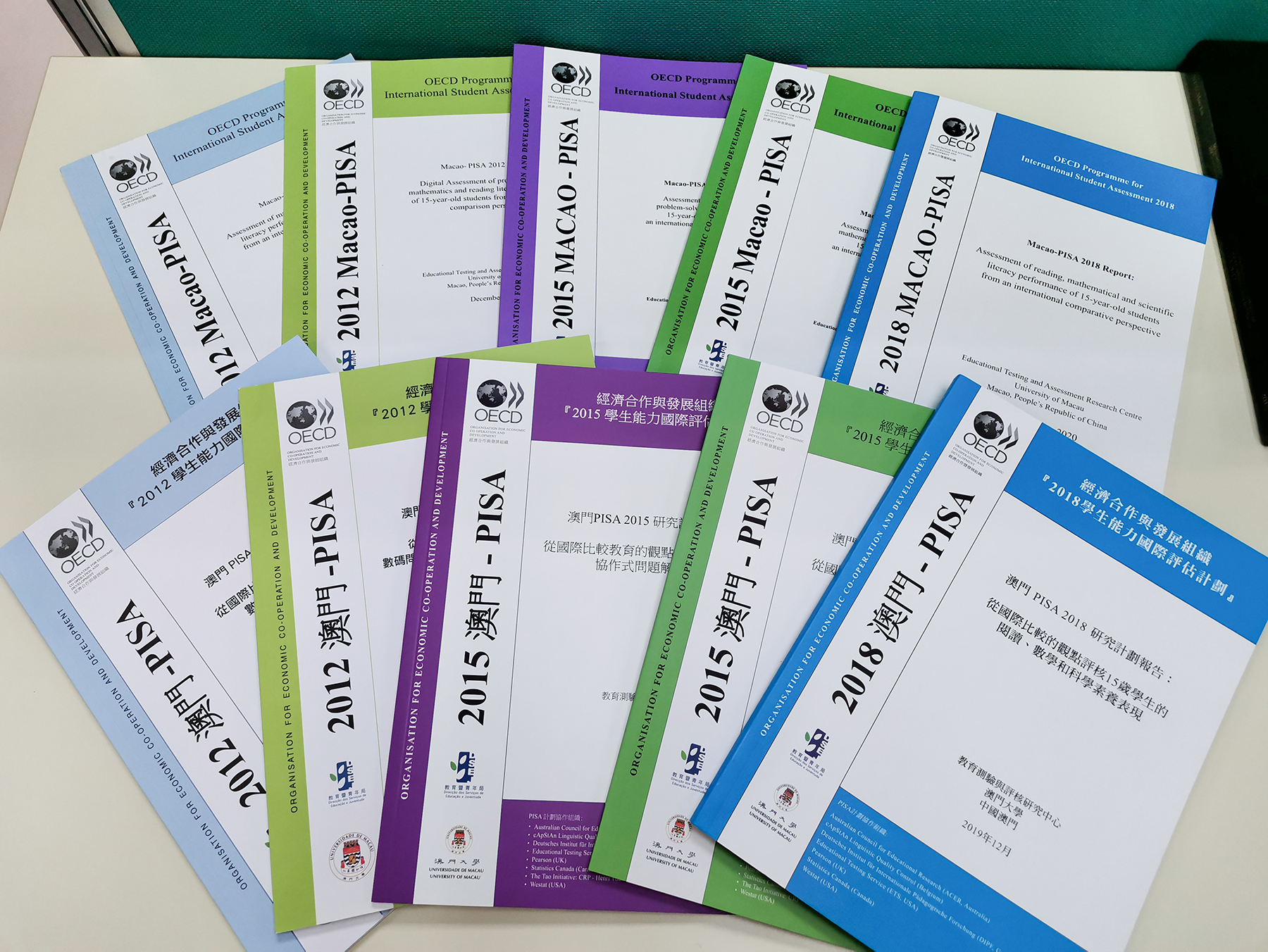
Prof Cheung Kwok Cheung’s PISA team helps the Macao SAR government to formulate better education policies
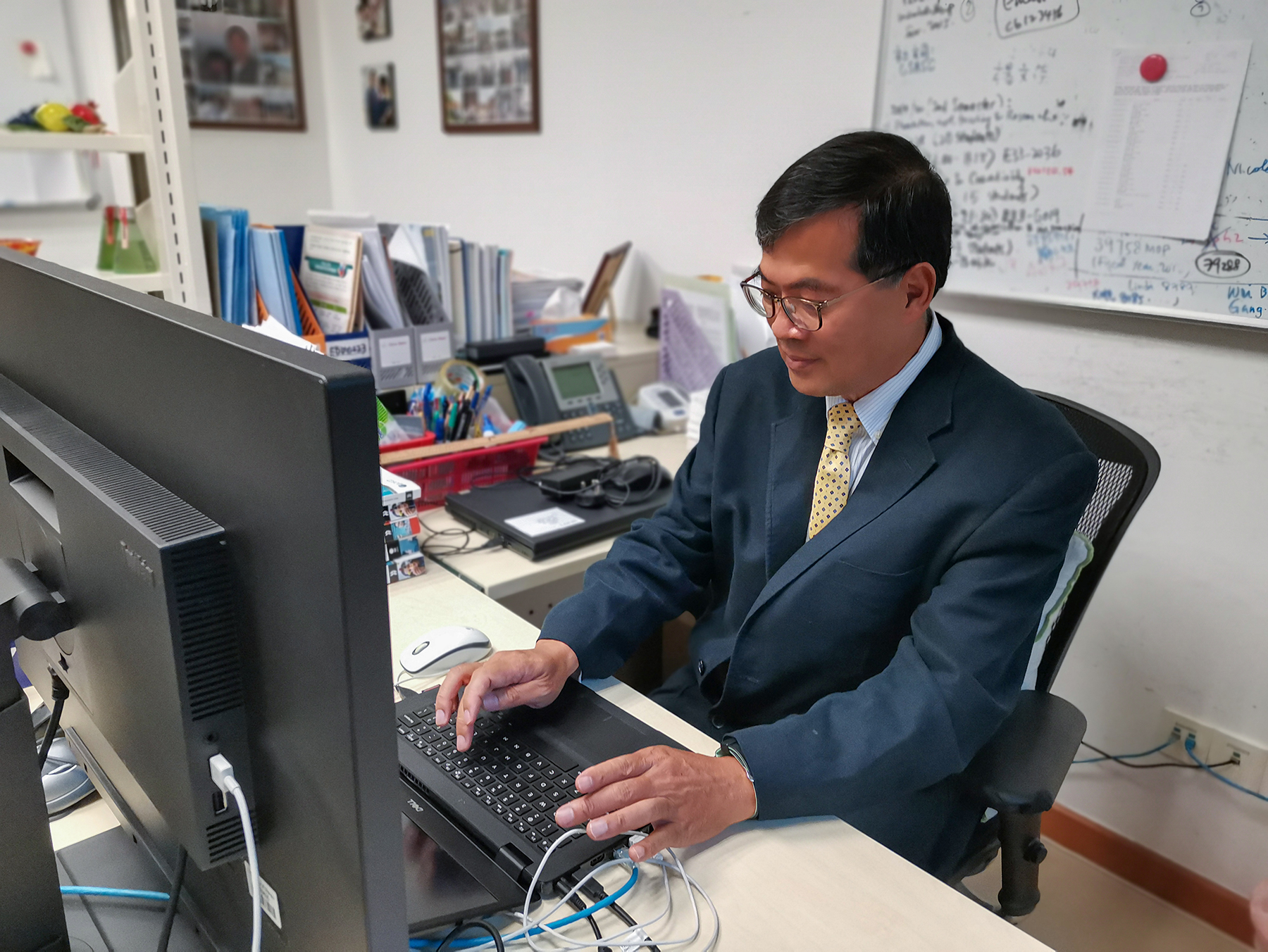
Prof Cheung Kwok Cheung is dedicated to teaching and research
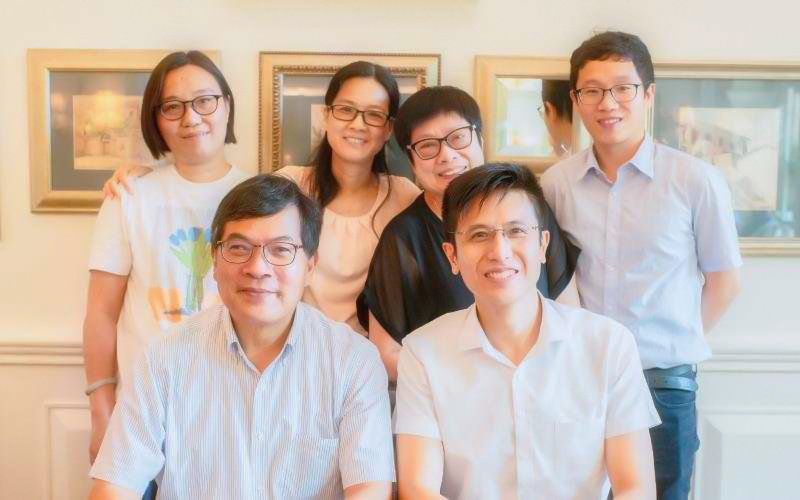
Prof Cheung Kwok Cheung (front, left) has trained many educational assessment professionals for Macao
